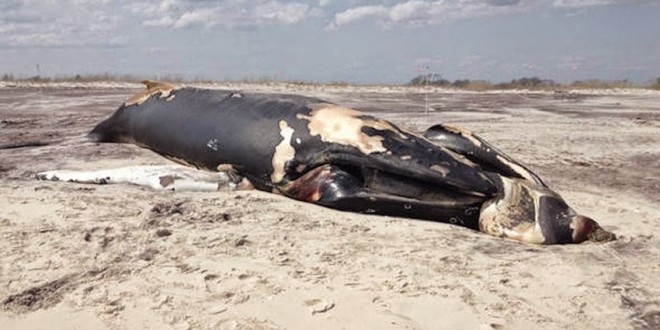Since May 2015, the bodies of 30 whales have washed up on the shores of B.C. and Alaska, prompting marine biologists to unravel the mysterious die-offs. One B.C. researcher says climate change may be the link.
Andrew Trites, a University of British Columbia professor studying the whale deaths, says the algae contains a neurotoxin has been contaminating the krill and sardines many whales eat. If it gets passed on to mammals or birds in large quantities, it can cause brain damage, seizures, and death.
Trites said the whales essentially got “food poisoning.”
“Each krill body was essentially a gel capsule full of poison,” he said.
Eleven fin whales,14 humpbacks, one grey whale, and four unidentified cetaceans have been found dead in Alaska since May. Four humpback whales have been found dead in B.C.
“We can rule a few things out by having inspected their bodies to rule out things such as starvation, any signs of disease, any signs of having been hit by ships or caught by fishing gear,” Trites told CTV News.
He said the deaths are a “wake-up call” that climate change is affecting ocean life as well.
Trites said a similar situation is also happening in California, where other creatures like sea lions, seals and seabirds have been dying since the algae bloom began.
He told CBC News hat the current algae bloom will likely end as winter approaches, but the possibility of similar events happening is there.
Although scientists haven’t been able to confirm the algae bloom is at fault, researchers at Ocean Networks Canada say that since a whale is at the top of the food chain, they are “an accumulator of toxins.”
“We would expect the larger species to have the highest concentration of these toxins,” said ONC associate director for science Richard Dewey.
The Department of Fisheries and Oceans told CTV News that any cause of death given so far is just speculation.
Agencies/Canadajournal
 Canada Journal – News of the World Articles and videos to bring you the biggest Canadian news stories from across the country every day
Canada Journal – News of the World Articles and videos to bring you the biggest Canadian news stories from across the country every day



